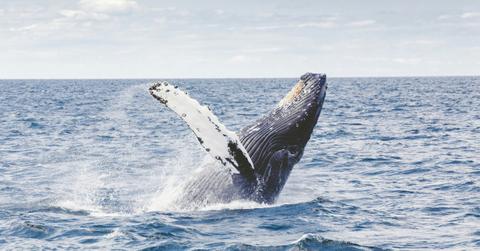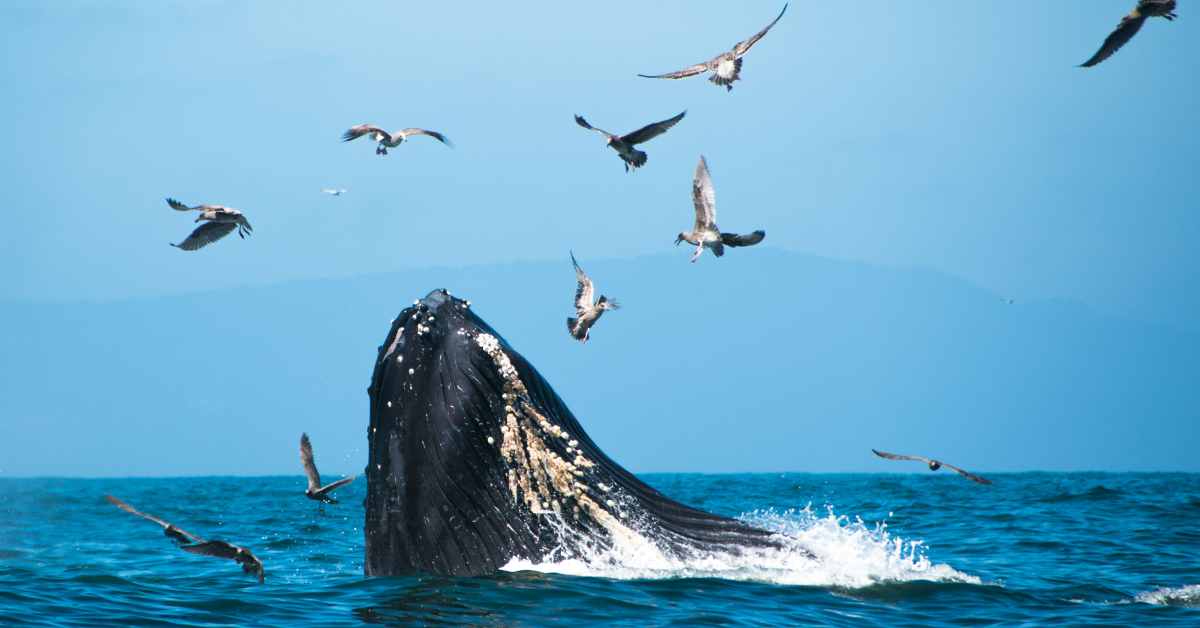Silence of the Whales — The Scary Reason Blue Whales Have Gone Silent in the Pacific Ocean
This has a trickle-down effect on the ocean ecosystems.
Published Aug. 6 2025, 5:30 p.m. ET

The lack of singing coming from the whales in the Pacific Ocean has researchers sounding the alarm. After spending six years listening to the ocean for sounds of whale songs, researchers have concluded that whales have largely stopped singing.
As for why the whales have gone silent, it turns out humans may be to blame.
Researchers shared their findings in the journal PLOS One, saying that climate change has caused the ocean temperatures to rise enough that some of the food that whales need for survival has died off. Without the small marine life they typically feed on, many whales no longer have the energy to do much more than try and stay alive.
Here's what that means.

Why have the blue whales gone silent?
Researchers have been reviewing data collected off the coast of California's Monterey Bay to determine what type of impact humans are having on the creatures that live in the Pacific. What they've discovered is that blue whales went strangely silent over a six-year period, decreasing their song by approximately 40 percent during that time period.
Experts at the Monterey Bay Aquarium Research Institute spoke with National Geographic about their findings.
According to them, intense heatwaves were behind the silence, since the warmer water created the perfect circumstances for toxic algae blooms, which killed off the blue whale's food sources.
"It caused the most widespread poisoning of marine mammals ever documented," Monterey Bay Aquarium Research Institute researcher John Ryan told the magazine. "These were hard times for whales."
The oceanic heatwave, which began in 2013, has been nicknamed The Blob. It spread for thousands of miles and created warmer water than this part of the country was used to seeing. In fact, The Blob was responsible for a 4.5-degree increase across the board, which wiped out much of what the blue whales eat, including anchovy and krill.
As such, the blue whales didn't have much reason or energy to sing their songs.
"It's like trying to sing while you're starving," Ryan said.
Ryan and his team's research focused on the California coast, but they noted that their findings aren't limited to the region.
In fact, they say that blue whales have stopped singing in several different areas, including the waters of the South Pacific, and in areas of the Southern Ocean and Argentina.
What does it mean when whales go silent?
As Ryan mentioned, the lack of singing means that the animals don't have the strength to do anything other than hunt for food. That means they may no longer have the energy, or desire, to follow their traditional migration patterns.
"If they can't find food, and they can traverse the entire West Coast of North America, that is a really large-scale consequence," Kelly Benoit-Bird, another researcher with the Monterey Bay Aquarium, told National Geographic.
Not only do these whales put their singing and travel plans on hold when they can't get enough food, but they also put less energy into finding a partner to mate with. This has a trickle-down effect on the ocean ecosystems, which could eventually change the ocean's ability to absorb carbon, potentially having devastating effects on the world.
In short, the sound of silence coming from the ocean could actually be interpreted as a cry for help — but will anyone answer?